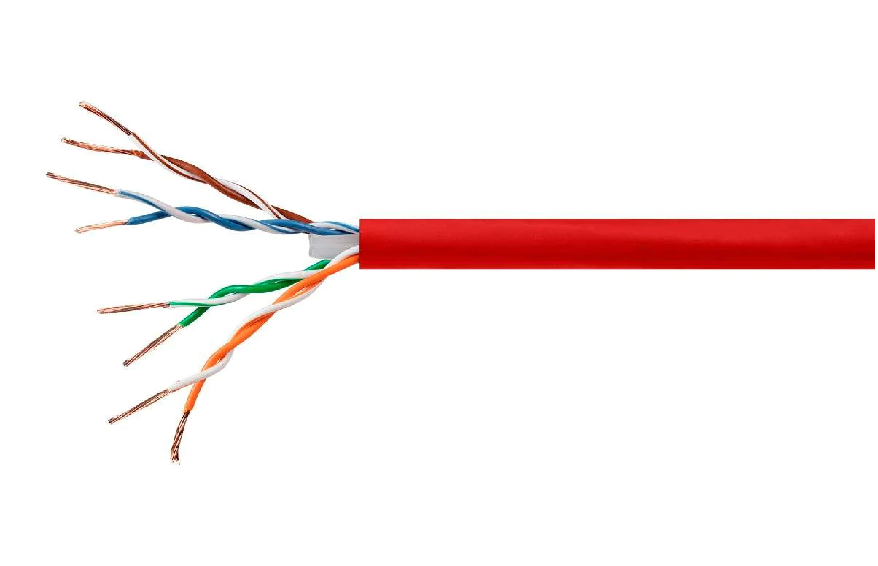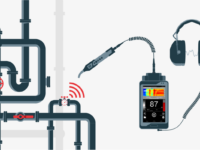Choosing The Most Practical Internet Cable Plans ForYour Business

With the world changing so quickly, high-speed internet is becoming more of a requirement in the workplace with high-quality Ethernet cables. It is necessary to determine the suitable cable for your business as various cables are available for application areas and locations.
Think about whether individuals will be using laptops, desktops, or both. It’s also essential to provide enough space for servers. Getting an internet connection into the office requires cabling, even if the businessman expects to go wirelessly.
Best Type Of Cable For Long Distance In Office
Internet cables are available in various configurations, including stranded and solid. Solid cable is the type of cable that is for longer distances and serves as the cable backbone. The cable length usually runs within walls, risers, or plenums and is referred to as the backbone.
If you’re running Ethernet cable over long lengths in your walls, outdoors, risers, or plenums, the solid conductor Ethernet cable is the most acceptable option. Solid conductors can be found in bulk Ethernet cables because they are easier to pull and run over long distances.
In the office, a patch cable is perfect for this case if you’re using cable for your end devices like routers and desktops. It would be best if you weren’t concerned because the long distance for these devices is generally under 100 meters. Always use a copper cable that is 100% pure copper.
Types Of Category Cables
Here are some guidelines for cables that are the right choice for your business:
Coaxial Cable: A form of cable with two ends is called a coaxial cable. Coaxial cables include a plastic shielding coating and solid copper; they are challenging to install. However, it can handle greater distances among network devices than twisted pair cables. This cabling method links many network components, including floors and buildings.
Category 5: Cat5 is the best choice for industrial and commercial applications that run in good airflow areas. It can transmit data and is compatible with Gigabit Ethernet and solid copper cables. Thus, Cat5 Plenum is employed in these locations to lessen the risk and end the spread of fires
Category 5e: Cat5e is an improved formula of Cat5 cabling designed to keep up with technological improvements. It includes a copper cable that adheres to a new standard, which reduces interference and increases transfer speeds. However, because Cat5e only has a bandwidth of 100MHz, it may not be suitable for your organization if your network requires higher speeds.
Category 6: Since its introduction in 2002, cat6 cabling has been advised if you own or plan to remain in your building. Businesses requiring advanced applications and rapidly developing applications can benefit from using cat6 cabling. It also has a far wider range of signal coverage.
Category 6a: Choose Category 6a cabling if you want to modify or move to a new building within the next 5–10 years. It has a higher standard to double transmission frequencies to 500MHz. They are generally tightly twisted and foil-wrapped, usually with braid or metallic shielding.
Also, we offered high-quality category cables plenum and shielded or unshielded ones.
Which One Should You Choose?
Cat7 cables are only one step behind the most recent cable technology, but they should be sufficient for office use. Cat7 Ethernet cable has a protected pair, which increases durability. It can transmit data up to 10 gigabits per second (Gbps).
Finally, it is available in length. A 6.5-foot wire should be sufficient.However, this Gigabit Ethernet cable provides users with high speeds and decreased crosstalk.
Cat7 provides an additional increase in bandwidth while also reducing crosstalk and noise. On the other hand, it has a 15-year lifespan. It is long, so it is best to use it for the job sector.
Here is some advice before choosing Internet cable.
- Furthermore, when internet cable is burned, they produce significantly harmful smoke, in the case of an emergency, if your installation is in a location with a high density of human staffs, a plenum will be a requirement.
- Before making a decision, assess the costs and advantages carefully.
- Increased shielding around the twisted pairs
Internet Connection Speed
The ability of cables to support more incredible speeds is one of the most crucial features to consider when buying cables. Cat5 plenum cables are good.
For instance, you can look for Cat5e plenum cable if you wish to undertake commercial building cabling.
Friendly To The Environment
Any location, whether residential or commercial, is acceptable; nevertheless, you must ensure that the needs select the cables.
Conclusion
Whether installing network cabling in an existing building, you’ll be familiar with the many network cables available to meet your business demands and requirements. When selecting the appropriate cabling architecture, consider the cable’s purpose, range, and signal strength.
The copper cable has a 328-foot length (100 meters). Cable makers are required to abide by the TIA standard regarding this distance. All networking hardware currently supports Cat7 cabling.






